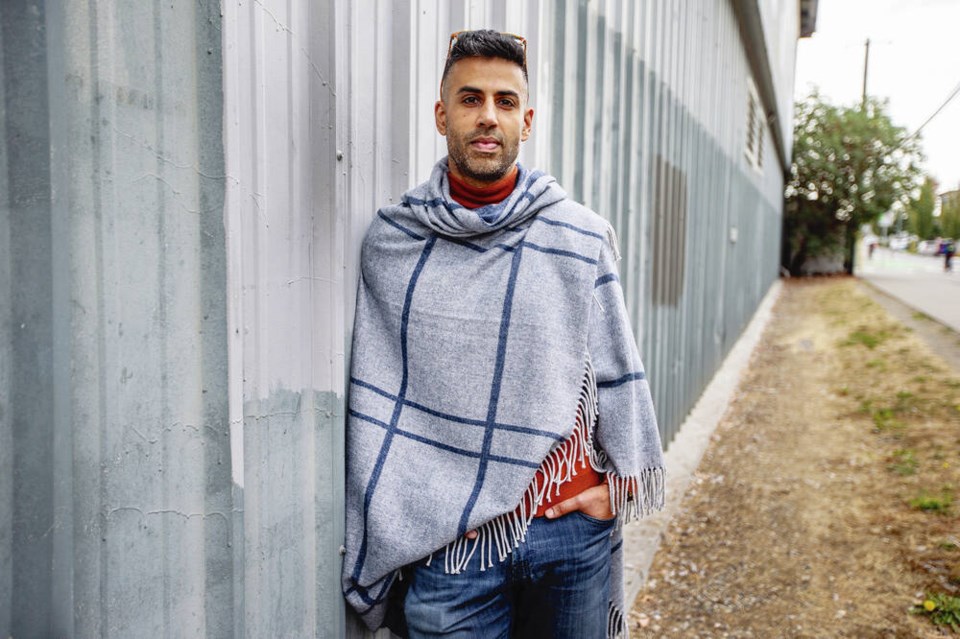Eileen Ramirez says she will not be observing the National Day of Mourning for Queen Elizabeth II on Monday.
She has too many other lives to mourn.
“On the day of her funeral, I will proudly wear my orange shirt,” says the Cowichan Tribes member, who has been busy preparing her food truck, Don’t Bannock Food Concession, for events around the Island marking National Truth and Reconciliation Day on Sept. 30.
For her, the extensive media coverage of the Queen’s death has highlighted the dwindling acknowledgement of the unmarked graves discovered at former residential schools.
“To think of all the deaths, all the young First Nations people that lost their lives in residential schools,” she said. “They are still finding bodies. … All these bodies are children that never made it home.
“And then the Queen dies and that’s when you make it a holiday? It’s like slap in the face.”
Ramirez says she sees the Queen’s death as a huge loss to her family, but she’s not mourning her as a monarch.
The Queen may not have been involved with the institutions where Indigenous children faced disease, abuse and death — just like she did not personally set up colonial regimes in Africa, Asia and North America, or develop the policy that led to India’s partition. But for some — including Ramirez — the Queen, as Britain’s head of state, is a symbol of those actions and their lasting impacts.
Rajinder Sahota, a Victoria lawyer with a Sikh Punjabi background, says he was shocked at the quick embrace of a new sovereign. “It’s difficult to look in the historical record and find crimes of a historical nature that are worse than those perpetrated on behalf of king and country,” he said. “I do ascribe to the principle that, if you’re going to inherit the privileges, you inherit the debts.”
Sahota’s great-grandfather, alongside his siblings, fought in the resistance to British occupation and colonization of India. His family was near Jallianwala Bagh in 1919 when British troops fired on a crowd of unarmed Indians — some of whom were protesting ongoing British occupation. An estimated 379 people were killed in what would become known as the Amritsar Massacre.
It’s just one story of the death, division and destruction left by British Imperialism, some of which occurred during Queen Elizabeth II’s reign, Sahota says.
British and Commonwealth forces fought the anti-colonial Malayan National Liberation Army from 1948 to 1960, thousands died during the Mau Mau uprising in Kenya in the early 1950s, and British troops fired on Catholic civil rights demonstrators in Northern Ireland in the early 1970s.
Sahota notes that the Royal Family has refused to take responsibility for the Crown’s role in residential schools or rescind the Doctrine of Discovery, the framework used to justify European imperial colonialism around the world.
“She’s had plenty of opportunities, but here she is, actively doubling down on historic crimes and ignoring them and refusing to do what’s right,” he says, adding the attitude extends to the money, artifacts and cultural items taken by the monarchy throughout its history.
CNN reported Thursday that with the Queen’s death, South Africans are demanding the return of the Great Star of Africa, or Cullinan I, a diamond mined in their country in 1905 and given to the Royal Family by colonial authorities. Some Indians have also called on the Royal Family to return the Koh-i-Noor diamond, given to the Queen of England in 1849 when the British annexed Punjab, through what the Smithsonian Magazine reported as the forced signing of the Treaty of Lahore.
“This is the height of racism, this is the height of theft, this is the height of barbarism,” Sahota says. “And yet we don’t look or think about any of that because we do not accept a very simple principle in our society here — we focus with laser-like precision on the crimes of the other, but we cannot even bring ourselves to question our own history and our own crimes.
“Black and brown and Indigenous people throughout the world, they don’t forget this history.”
Sarah Hunt or Tłaliłila’ogwa, an assistant professor of Indigenous political ecology at the University of Victoria, says Indigenous people have been in mourning for more than 150 years.
“The building of empire in the name of the Crown has been at the expense of Indigenous people,” she says. “The quality of life we experience every day as Indigenous people is because of that expansion of empire.
“It’s not just the theft of our lands, but also the intergenerational impacts of vast amounts of loss of life. That includes missing and murdered Indigenous women and girls, that includes the deaths of children at residential schools.”
For Hunt, who is Kwakwaka’wakw and Dzawada’enuxw, the response to the Queen’s death shows there is work to do in developing the “truth” in truth and reconciliation.
“To me, this shows that those truths are not fully understood because if they were, I think we would have a different sentiment around what this signifies,” she says. “How do we both mourn the loss of this monarch and at the same time, say that we’re in a time of reconciliation?
“I think that shows we have a lot of work to do with fully grasping the truth of colonialism.”
>>> To comment on this article, write a letter to the editor: [email protected]



